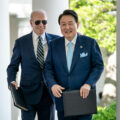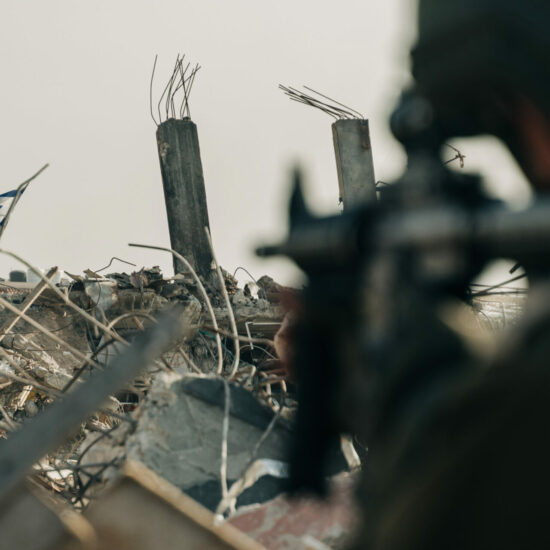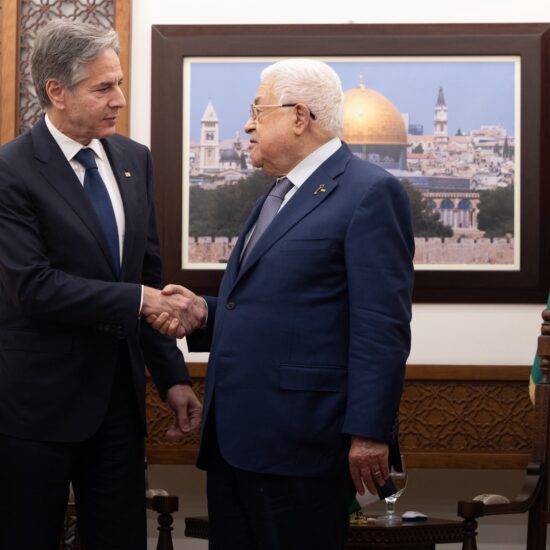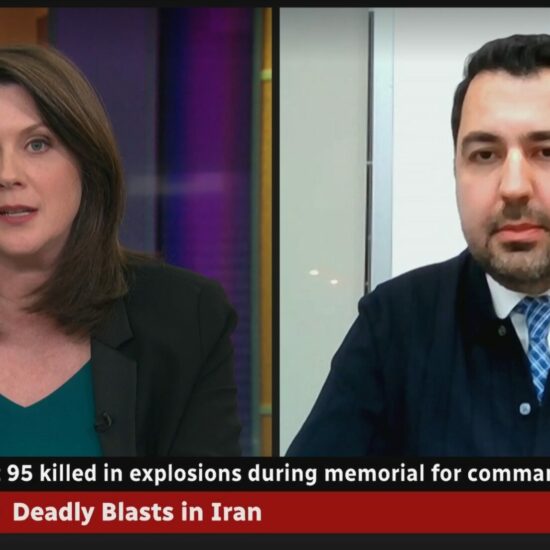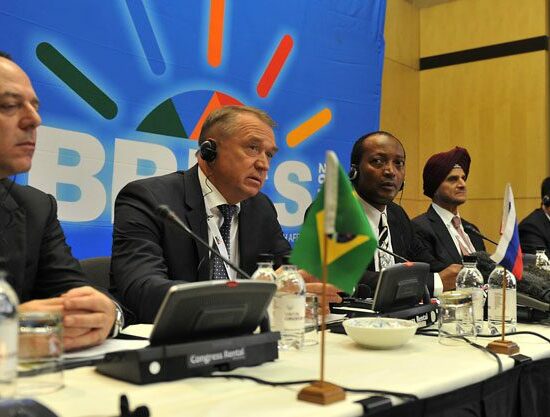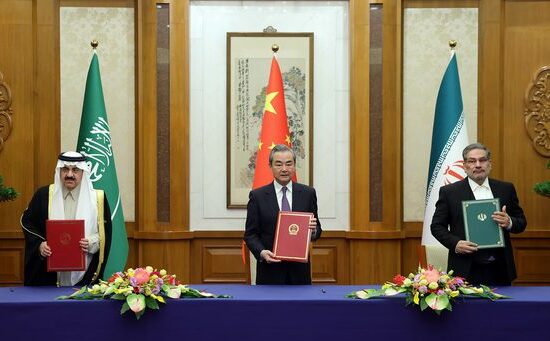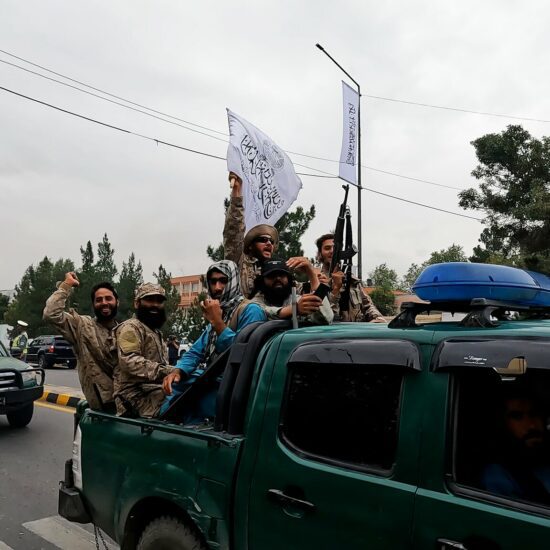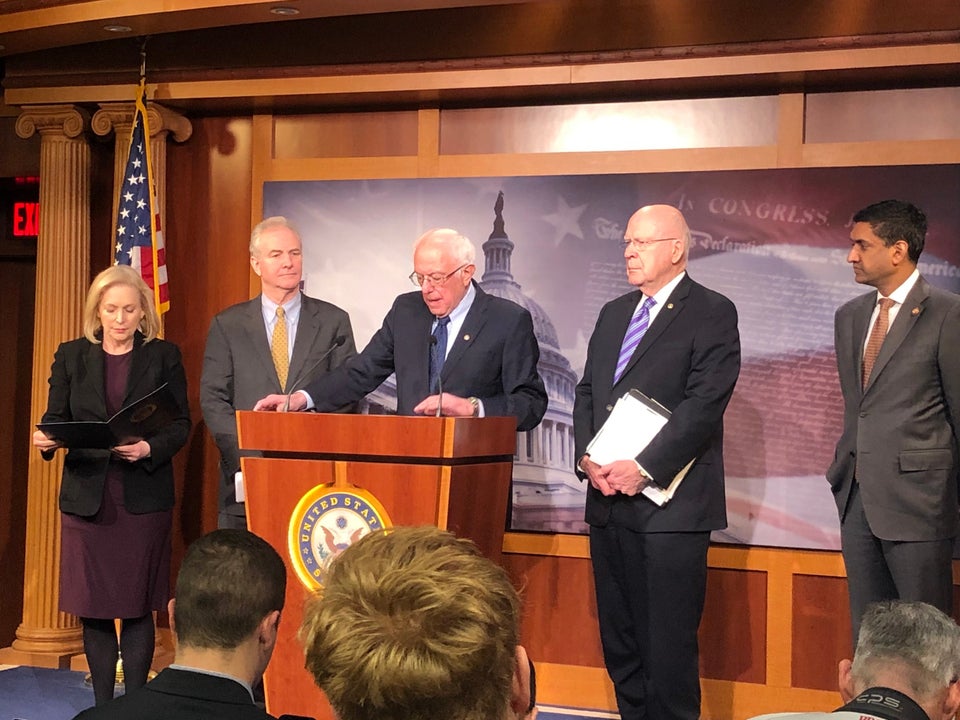
From Bernie Sander’s Tweet: “I am proud to stand with my colleagues today to reassert our constitutional authority and introduce legislation—the No War Against Iran Act—to stop President Trump from leading this country into an illegal war against Iran.”
The common sense radicalism of Sanders’ foreign policy is arguably his most distinguishing feature in the 2020 Democratic Primary; whereas other contenders have begun to shift left, none have come close to Sanders’ willingness to cross traditional redlines in American discourse.
By Amadeus Narbutt
As the first electoral battle of the Democratic Party presidential primary nears, foreign policy is becoming an increasingly prominent and divisive issue among the candidates. A recent Suffolk University/USA TODAY poll found foreign policy among the most important issues in voters’ minds. Foreign policy and national security ranked as more important than impeachment or climate change – and on a par with gun control – with a third of respondents saying it will impact their vote for President in 2020. As Commander-in-Chief, the President has an unprecedented amount of control over foreign policy relative to other policy areas, thus candidates for President deserve increased scrutiny over these issues.
Recent escalations by the Trump Administration in regards to Iran have pulled the question of America’s involvement in the Middle East to the fore, and have illuminated a very obvious split between the hawkish and dovish candidates in the race. While all the candidates – as well as the Democratic Party as a whole – have condemned Trump’s assassination of Iranian General Qasem Soleimani, their statements have nonetheless drawn distinctions between how they view American foreign policy, the role of American forces abroad, and what approach they would take as Commander-in-Chief.
Early fluctuations and spikes in popularity in the Democratic primary race seem to have abated and stabilized in recent weeks, with four contenders for the nomination securing their place as frontrunners: former Vice President Joe Biden, Vermont Sen. Bernie Sanders, former Mayor of South Bend Pete Buttigieg, and Massachusetts Sen. Elizabeth Warren. Of those four, only Bernie Sanders represents a clear break from the bi-partisan foreign policy consensus in their discussion of recent events regarding Iran.
Joe Biden has made it clear that he is the candidate of the foreign policy establishment. Much of his campaign has been animated by the idea of ‘returning to normalcy’, with an often comical reliance on his position as Obama’s Vice President as justification for his ability to do so. Biden has also secured endorsements of 133 foreign policy officials and former Secretary of State John Kerry has become a surrogate for Biden on the Iowa campaign trail. In his recent rhetoric on Iran, Biden has been uncharacteristically dovish – though even then only marginally so – by cautiously warning against military engagement in the Middle East. This stands in stark contrast to Biden’s legacy as a hawk, who former Secretary of Defence Robert Gates has stated has “been wrong on nearly every major foreign policy and national security issue over the past four decades.”
This uncharacteristic nuance likely comes as a result of Biden’s electoral calculus, not as a sincere expression of his political beliefs. The move comes at a time in the Democratic primary where Bernie Sanders – Biden’s toughest opponent in the race – has aimed to distance himself from Biden on foreign policy. In response, Biden has aimed to moderate his own beliefs and present a more palatable view of foreign policy to the increasingly progressive Democratic base. Yet regarding Soleimani, Biden said that he would not rule out killing Soleimani if he were President, but that he is not willing to give Trump the benefit of the doubt regarding the intelligence and justification for the strike. In other words, the murder of a high-ranking military official of a country with which the United States is not at war is not necessarily disqualifying in itself. Rather, Biden was simply not pleased with the circumstances of the assassination.
Pete Buttigieg, who is Biden’s greatest competition for the ‘moderate lane’ of the primary, provided a similarly substance-free response to the killing of Soleimani: “There is no question that Qassim Suleimani was a threat to that safety and security, and that he masterminded threats and attacks on Americans and our allies, leading to hundreds of deaths. But there are serious questions about how this decision was made and whether we are prepared for the consequences.”
Note that Buttigieg – without providing specific justification – immediately characterizes Soleimani as a threat, thus lending some level of support to Trump’s reckless actions. The statement’s characterization of Soleimani echoes a point made by Current Affairs editor Nathan J Robinson in regards to war propaganda, where state information paints our perceptions of individuals and thus frames the acceptable boundaries of debate when mass media takes this information as unquestioned truth. Robinson notes that Mike Pence used a similar tactic to link Soleimani to the 9/11 hijackers; reference is made to the 9/11 Commission report which states that 9/11 hijackers passed through Iran, journalists ignore the part of the report where it is stated that Iran was not aware of the hijackers plans, and eventually Pence’s claim is published uncritically in Vox as undisputed fact. Buttigieg is using the same unjustified characterizations of Soleimani’s motives to simplify American aggression against Iran.
Whether the American military does or should have the authority to murder military officials of other countries without a declaration of war – regardless of whether you can paint them as a villain – is not a question that Buttigieg wrestles with; only Buttigieg rivals Biden in his bid to continue America’s role as the unilateral global military superpower. Instead, the statement suggests that in regards to Soleimani, Mayor Pete merely has a procedural qualm with ‘how this decision was made’.
Elizabeth’s Warren’s response to the killing of Soleimani is also nuanced like Biden’s, but to her credit far more accurate. Warren’s strategy in the primary thus far has seemed to be to provide a sensible unifying option between the progressive and centrist wings of the party. In essence, she is selling herself as the best of Biden and Sanders combined; progressive enough to win over Sanders’ enthusiastic and increasingly influential base, but pragmatic enough to win support for Democratic Party centrists who abhor anyone that rocks the boat. On foreign policy, she has tried to toe a similar line, but straddling those two camps is no difficult task, especially with her record.
In response to Soleimani’s assassination, Warren wavered between positions that sounded at times like Buttigieg – where she precludes any discussion of American aggression with a characterization of Soleimani as a murderer, and at other times like Sanders – where she rightly characterizes Trump’s actions as an assassination. When pressed on her position, Warren concluded that “the point is not whether or not Iran is a bad actor; they are”, but then stated that some problems cannot and should not be solved militarily.
While Warren may try to present herself as a break from the bi-partisan consensus on foreign policy, this break is at best surface-deep. Warren has agreed with Trump’s devastating economic sanctions in Venezuela which killed 40,000 people between 2017 and 2018, has a legacy of being a war hawk on Israel, has praised the military-industrial complex as an important ‘21st century job’ creator, and has voted for increases to Trump’s military budget. Thus, while Warren’s statements on Soleimani’s killing may sound progressive, her record provides voters with no confidence that she would significantly alter American foreign policy norms as Commander-in-Chief.
In contrast to these three frontrunners, Bernie Sanders provides an incomparable legacy of anti-war activism and criticism of American aggression abroad. In response to the strike on Soleimani, Sanders correctly described the event as an ‘assassination’ and later compared it to the killing of dissidents in Putin’s Russia. Sanders highlighted how Soleimani’s killing was a violation of international law, and how such flouting of a rules-based international order could lead to ‘anarchy’. Further, Sanders not only criticized the waste of US government resources on war over domestic concerns, but also characterizes war itself as a class-issue, stating that “it is rarely the children of the billionaire class who face the agony of reckless foreign policy. It is the children of working families.”
In recent days Sanders has campaigned with Barbara Lee – the lone voice of dissent in the US Congress in the otherwise unanimous vote for the authorization of the use of military force after 9/11 – to start a wave of protests across the country under the banner of #NoWarWithIran. Further, Sanders has introduced the No War Against Iran Act to withhold funds from the Pentagon for any unauthorized use of military force against Iran. Sanders has spearheaded similar efforts in the past in regards to the conflict in Yemen. The common sense radicalism of Sanders’ foreign policy is arguably his most distinguishing feature in the 2020 Democratic Primary; whereas other contenders have begun to shift left, none have come close to Sanders’ willingness to cross traditional redlines in American discourse like US-Israeli relations and American interference in Latin America.
Sanders’ biggest impact on this race so far has been to shift the boundaries of discussion of domestic policies in the Democratic Party leftwards. But in the long-term, his influence on the foreign policy debate may be even greater. It is a struggle he has been fighting for decades, and if he succeeds in winning the nomination and defeating Donald Trump – which he is poised to do at the moment – it will represent a monumental realignment of the role of the United States abroad.

